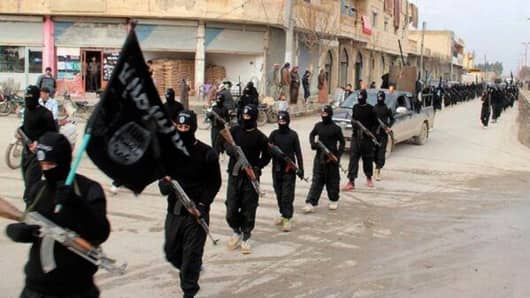Kurdish peshmerga, "those who stand before death," have stopped the Islamic State's advance along a frontier that is more than 600 miles long. Peshmerga have retaken territory in Sinjar and Nineveh. They have intervened to save Yazidis and Christians. With the tools to do the job, peshmerga can turn the tide against ISIS.
Barzani requested military equipment from President Barack Obama when they met in Washington on May 6. He asked for more training and the same heavy offensive weapons the U.S. provides the Iraqi government: F-16 jet fighters, Apache attack helicopters, M1 Abrams tanks, and armored vehicles. Kurds also want drones for intelligence, surveillance, and reconnaissance. Barzani also wants weapons delivered directly to the peshmerga rather than via the Iraqi government.
U.S. policy still requires that security cooperation with the Kurds go "by, with, and through Baghdad."
Obama's response to Barzani: I'll get back to you after checking with the Iraqi government.
Read MoreEurope faces rising terror threat
Baghdad opposes heavy offensive weapons for the Kurds because it fears that peshmerga might someday fight for independence. Kurds definitely want their own state, but Barzani has promised to proceed deliberately and through negotiations.
There are already many U.S. military advisers in Kurdistan, primarily involved in training. However, the Obama administration refuses to deploy special forces, who would act as target spotters and coordinate close air support.
Washington appears to be fundamentally ambivalent about the Kurds. It is not clear whether its goal is to train and equip peshmerga tactical units that can achieve limited objectives over a short period of time, or to build up a coherent professional army.
Read MoreWill Kurdistan sell oil if Baghdad doesn't pay?
The fall of Ramadi was a wake-up call. There is no unity of Iraq. There is no viable Iraqi Army. Sunni officers and the Arab tribes celebrate with jihadis.
Moreover, the Iraqi government appears to be simply a proxy for Iran. Qassim Soleimani, the head of the Iranian Revolutionary Guard, was on the front line of the fight against the Islamic State in Tikrit. Baghdad's only effective fighters are Shiite militias, who are notorious for atrocities that further erode the goal of reconciliation.
Obama must be steely-eyed. If the United States is serious about degrading and defeating the Islamic State, it must provide sophisticated weapons to the Kurds and send in Special Forces mandated to identify and help target ISIS positions.



